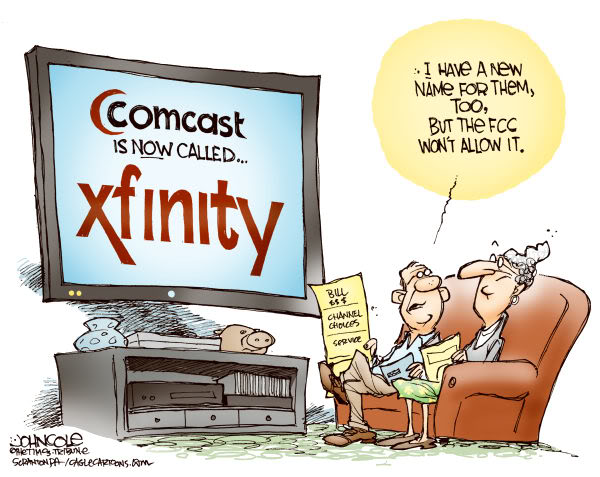 If regulators believe they can turn Comcast and Time Warner Cable’s mega-merger into a consumer-friendly deal in the public interest, they are ignoring history.
If regulators believe they can turn Comcast and Time Warner Cable’s mega-merger into a consumer-friendly deal in the public interest, they are ignoring history.
No matter what conditions regulators place on Comcast to approve its merger with Time Warner Cable, they will be toothless, television industry insiders told the New York Post.
Insiders suggest the Federal Communications Commission has been largely impotent enforcing conditions it required in earlier merger deals, including those Comcast promised to fulfill in its earlier merger with NBC Universal.
Among Comcast’s broken promises cited by The Post:
- Comcast failed to live up to its promise to market its low-cost broadband service, Sen. Al Franken (D-Minn.), an outspoken critic of the NBCU deal, told the FCC earlier this year;
- Comcast paid a fine for not marketing A standalone $50 broadband service widely enough;
- The giant cable provider’s hollow commitment to Net Neutrality didn’t stop it from excluding certain XFINITY video content from its data caps;
- They discriminate against non-Comcast owned cable channels, especially those that compete with network Comcast owns or controls. Examples include The Tennis Channel and Bloomberg TV.
Industry insiders claim the larger Comcast gets, the more the company spends on clever lawyering and lobbying to keep itself out of legal hot water with Congress and regulators. That has begun to worry programmers like Discovery Communications, who filed objections to the merger deal.
Discovery officials warned the FCC Comcast’s takeover of Time Warner Cable would deliver an NSA-like treasure trove of viewer data to the nation’s biggest cable company. Comcast already monitors its customers’ viewing habits with tracking software installed inside set-top boxes that monitors what customers are watching at any given time. Comcast has refused to share that data with outsiders, and uses it primarily to pitch potential advertisers.
Comcast’s size already gives the company unprecedented power over cable programming rates during negotiations. Making the company even larger worries Discovery, which expressed concern that:
- Comcast’s use of its bigger muscle to impose prices, terms and conditions that are overly favorable (for instance, preventing programmers from selling over-the-top rights or refusing to give competitors to its own services wide distribution);
- The possibility that the cable giant could impose broader “most favored nation” clauses in agreements;
- That Comcast could exercise control over national and local ad sales markets to the detriment of programers who also compete there.


 Subscribe
Subscribe